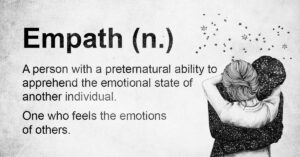All About The Family Nursing Practitioner Job Role

As 21st-century healthcare is changing before our eyes, one of the most exciting roles to emerge has been that of the family nurse practitioner role, with people using online BSN to DNP programs to increase their skill base.
This interesting and varied role allows highly qualified nurses to work with people of all ages, from newborn babies right up to adults at end-of-life care. The primary focus of the family nurse practitioner is exactly that, family medicine.
For healthcare professionals that want to get back to the route and the heart of medicine by working with families for everyday complaints, diseases, and illnesses, to improve the life and quality of life of patients, and to make a difference to family health for generations, the role of the family nurse practitioner is exactly what you need.
The Role Of A Family Nurse Practitioner
The family nurse practitioner role has been an essential part of family medicine and healthcare for a number of decades now, and that requirement is only increasing as time goes on. More and more family medicine clinics see the advantages of having a highly trained and highly qualified nurse practitioner on site.
It is not just family medicine clinics that host the role of the family nurse practitioner, but FNPs can be found in hospitals, medical practices, and even mental health facilities.
As more and more people are in need of expert medical healthcare, the role of the family nurse practitioner – to care for everyday health complaints and to monitor the health of families – is a role that has really coming into its own and is being seen as a hugely vital part of generalized health care.
Family nurse practitioners work with all kinds of patients, they are advanced practice providers and experienced nurses who can work with patients who suffer from chronic illnesses such as diabetes and cystic fibrosis, and they may also treat acute illnesses and symptoms. Depending on the state that the family nurse practitioner is practicing in, their role may go even further and seem almost equal to an on-site physician role.
Training To Become An FPN
Training to become a family nurse practitioner requires a lot of dedication and a lot of hard work, but luckily these are usually skills that nurses across healthcare will display on a daily basis, nurses are very rarely afraid of hard work!
To begin your journey to family nursing practitioner status you will need to have earned a bachelor of science in nursing (BSN) degree. The BSN degree is the very first step to becoming a fully registered nurse who can take on higher-level qualifications, these usually take 4 years to complete and will be a mixture of general health care education-specific nursing courses as well as internships and practical experience.
Before completing your nursing practitioner status, you must first complete the registered nursing license by passing the National Council for Licensure Examinations (NCLEX).
Once a qualified nurse has graduated from a BSN course and taken the NCLEX exams to become a registered nurse, it is time for students to specialize in a particular area of medicine. Examples of specialisms may include areas such as mental health, neonatal, or pediatric. For nurses hoping to continue their education to take on the family nurse practitioner role, specializing in family care at this point is a good idea.
From here there are two ways to gain your nursing practitioner status, students may decide to take an accredited Master of Science in Nursing (MSN) course, or they may wish to look into one of the many online BSN to DNP programs to complete their training to doctorate level nursing practitioner.
One of the advantages of studying for the doctorate of nursing practice DNP program is that once students graduate, they will be in a much better position to gain higher-level jobs, and these may include jobs in leadership positions as well as in non-patient focusing roles such as healthcare lobbying and governance.
What Specialist Skills Does an FPN Need?
Working in family care often requires nurses to develop a specific set of skills that are required for the role, as well as improving more generic soft skills to ensure that they are more able to deal with the people aspect of the role, which some may find challenging.
Skills such as strong communication and great leadership are important for the aspiring family nurse practitioner. FPNs are likely to encounter patients of all ages and patients who have all kinds of health statuses, which means they need to be flexible and adaptable in the way in which they communicate with patients, and show good leadership skills to help the team on the ground deal with the general day-to-day patients and healthcare workload in whatever facility they are working.
It is for this reason, that nurses need to develop a strong sense of calm under pressure. Nursing and healthcare, in general, is a highly pressurized job and many nurses will buckle under the pressure that comes with it if they do not have strategies in place.
Stress and pressure in nursing can come from all areas, from both the patient side and the colleague side.This can make the role itself particularly challenging but for many nurses, this is actually part of the role that they really enjoy and that gives them the most job satisfaction.
Added to those soft skills mentioned above, modern-day nurse practitioners need to be able to work as logical analysts who are unafraid to look at signs, symptoms, and data to come up with diagnoses and theories based on strong analytical research.
Medicine is an ever-changing industry and it is up to every nurse practitioner who works in medicine to keep his or herself in the loop and ensure that their knowledge is always at the top of their game.
Responsibilities Of The Role
The nurse practitioner role is one of the most varied roles in healthcare and, depending on the specialism and depending on the location where the nurse practitioner works, this role can vary in seniority level and will vary on what specific responsibilities come tied to the role you are taking on.
In general, nurse practitioners in a family practice setting will be expected to work independently and carry out physical exams on patients who may be exhibiting acute illnesses or symptoms, chronic illnesses, or perhaps even critical care cases.
Practitioners will be expected to be able to do an age-appropriate physical exam for patients, take histories, and update notes, as well as order and interpret lab tests and results.
Depending on the state and the state laws, family nurse practitioners may be expected to prescribe and sign-off medicines with or without the consent of a practicing physician.
In some states, nurse practitioners may even be involved in some minor surgery and procedures, and all nurse practitioners will be expected to assist with the pre-operative and post-operative care of patients.
Depending on the facility in which the family nurse practitioner works, it is also likely that you will have the opportunity to work with patients and help them transition between healthcare settings including discharging patients and transferring them on for specialist care.
This kind of varied work involves collaborating with professionals across the healthcare board, both in their own medical facilities where they work and in wider medical facilities, for example making the appropriate referral for specialist treatment or care.
FPN Soft Skills
On the more soft skilled side of the role, family nursing practitioners are usually the first point of call for family medicine of patients of all ages.
Family nurse practitioners will be used to building out their own patient notes and histories depending on the information they receive.
Working with patients throughout their life is an incredibly rewarding part of the role for a family nursing practitioner, and for those FPNs that have been in particular facilities for a long time, it is more than possible to be able to see a patient through a very long stretch of their lifetime.
For example, at the beginning of your career, you may assist in the prenatal care of a mother who is ready to have her first child, and then follow that child through the neonatal phase, through childhood medicine, and perhaps even adolescent and young adult medicine.
Some family nursing practitioners who have been working in healthcare for many decades have even had the opportunity to witness babies being born, raised throughout their medical life, and then returning with families of their own.
It is this kind of personal story and personal connection that makes family nursing practitioners some of the best and happiest of all of the modern healthcare roles.
Career Progression Opportunities
It is possible to become a family nursing practitioner through two major routes, and most family nursing practitioners will do an online BSN to DNP program.
Most online BSN to DNP programs will allow students to have a high level of clinical experience and work on a part-time basis to ensure they still have a job while they are studying.
It is the job of an online BSN to DNP program to set the nursing practitioner up for a lifetime of a long and healthy career, and most online BSN to DNP programs will have courses and modules to help students develop a range of higher-level skills that will be required throughout their career.
Doing a part-time online BSN to DNP program, the role of a family nursing practitioner has become very popular with women in healthcare. The online BSN to DNP option allows women to continue working at their regular nursing job, while also studying to further their career. this kind of flexibility in learning is particularly helpful for working mothers.
If you are a qualified and experienced nurse who is considering taking your career further, an online BSN to DNP program could be exactly what you are looking for.
Flexibility in learning and access to some of the best teaching resources in the world allows many providers of online BSN to DNP programs to give really in-depth courses that are perfect for nurses who are ready to take their studying to the next level.
What’s the Demand for Family Nurse Practitioners?
The demand for Family Nurse Practitioners (FNPs) is currently high and projected to continue to grow in the coming years. This is due to several factors, including an aging population, an increase in chronic diseases, and a shortage of primary care physicians.
According to the Bureau of Labor Statistics (BLS), employment of nurse practitioners, including FNPs, is projected to grow 45% from 2019 to 2029, which is much faster than the average for all occupations. This growth is due to the increasing demand for healthcare services, as well as the emphasis on preventative care and cost containment.
In addition, many states have expanded the scope of practice for nurse practitioners, allowing them to practice independently and prescribe medications without physician oversight. This has increased the demand for FNPs, particularly in rural and underserved areas where there may be a shortage of physicians.
Recommended Reading :
Other Nursing Practitioner Roles To Consider
While family nurse practitioner may be a job role that really speaks to you, this is by no means the only role available to graduates from an online BSN to DNP program, or any other nurse who has gained nursing practitioner status.
Some of the career options available to qualified and experienced nursing practitioners may include:
- Pediatric nurse practitioner – working specifically with children and their families, usually in an intensive care or clinical environment which requires a specialized level of care.
- Licensed midwife – the perfect role for family nurse practitioners who love to see new babies coming into the world, licensed midwifery is a wonderful career path to take.
- Oncology nurse practitioner – a specialized career nurse who focuses their time and skills helping patients who are being affected by cancer. This may also include helping patients’ families on how to deal with the patients, as well as continued treatments such as chemotherapy and radiotherapy.
- Psychiatric nurse practitioner – a psychiatric nurse practitioner is an expert in mental health and psychiatric conditions. Whereas family nurse practitioners will be used to and experienced in giving out top-level information and care, specialized psychiatric nurse practitioners are able to help patients with more challenging mental health concerns.
- Geriatric and gerontological nurse practitioner – nurse practitioners who specialize in the geriatric side of medicine are usually found working in hospitals and care homes with elderly patients, the training required to become a geriatric nurse practitioner involves understanding some of the specialist health complaints that elderly patients are likely to be dealing with, such as dementia, arthritis, chronic illness and other health conditions that may be life-limiting and quality of life-impacting
As you can see, the role of the family nurse practitioner, and nursing practitioners in general, is very varied and requires a lot of expertise and experience.
If you are thinking about becoming a nursing practitioner, then taking one of the many online BSN to DNP programs is a great place to start.






